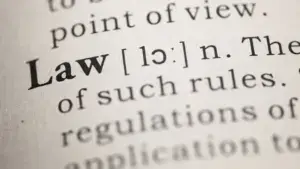When the government makes a serious mistake, whether through negligence, harassment, or abuse of authority—the emotional damage can be just as devastating as any physical injury. Yet suing a public agency is not as straightforward as suing a private individual. Government entities in California enjoy a degree of sovereign immunity, meaning you can’t automatically sue them unless specific legal exceptions apply.
So, when can you actually sue your local government for emotional distress? The answer depends on the circumstances, the type of misconduct involved, and whether you follow the strict filing rules set out under California law.
Understanding Government Liability

Under California’s Government Claims Act (Gov. Code § 810 et seq.), a public agency generally can’t be sued unless the law expressly allows it. This statute gives cities, counties, and state departments limited immunity but also outlines exceptions (circumstances where victims may pursue damages for emotional distress and other losses).
Common examples include:
- Negligent actions by public employees acting within the scope of their duties (for example, police misconduct or careless emergency response).
- Wrongful acts by government staff that cause foreseeable mental anguish.
- Breach of a statutory duty owed to the public (e.g., failure to maintain safe public property).
If your case fits one of these exceptions, you can bring a government tort claim, but only after meeting strict notice deadlines.
What Counts as Emotional Distress Under the Law?
In legal terms, emotional distress means the severe mental suffering or anguish caused by another’s wrongful act. This can include:
- Anxiety, depression, humiliation, or post-traumatic stress.
- Sleep disturbance, fear, or loss of enjoyment of life.
- Physical symptoms linked to emotional trauma.
California recognizes two main types of claims:
- Intentional Infliction of Emotional Distress (IIED) – when a government employee deliberately behaves outrageously or abusively.
- Negligent Infliction of Emotional Distress (NIED) – when the distress stems from carelessness or reckless behavior.
Both types are possible against a public entity only if the claim fits within a statutory waiver of immunity.
Suing Your Local Government in California
If a city, county, or state agency causes emotional distress, your first step isn’t court, it’s the Government Claims Program. You must file an administrative claim with the public entity before you’re allowed to sue.
According to the California Department of General Services:
- You must file within six months of the incident for personal-injury or emotional-distress claims.
- The government has 45 days to accept or reject your claim.
- If rejected, you have six months from the mailing of the rejection notice to file a lawsuit.
Miss any of these steps, and your claim is likely done for, no matter how severe your suffering.
When Is Emotional Distress Claim Valid Against the Government?
To succeed, you need to show both liability and legitimacy of the distress. Courts look for clear evidence that:
- The government owed you a duty of care.
- That duty was breached by wrongful or negligent conduct.
- The breach directly caused severe emotional harm.
Common Situations That Qualify
- Police Misconduct: Excessive force, wrongful arrest, or harassment by law enforcement officers.
- Negligent Emergency Response: Delayed medical assistance or careless dispatch errors.
- Government Negligence: Poor maintenance of public property leading to traumatic injuries.
- Public Workplace Harassment: Persistent discrimination or retaliation within a government job.
Not every unpleasant encounter qualifies. Courts generally require proof of severe distress, supported by medical records, therapy documentation, or witness testimony.
How Much Can You Recover for Emotional Distress?
The value of an emotional-distress claim varies widely based on the facts, severity, and impact on your life. Settlements and verdicts may compensate for:
- Psychological Treatment Costs (therapy, medication, counseling)
- Lost Wages if you miss work due to mental health issues
- Loss of Enjoyment of Life or Relationships
- Pain and Suffering
In California, damages against public entities are limited so punitive damages aren’t available against government agencies. However, compensation for economic and non-economic harm remains possible when negligence or abuse is proven.
Federal Tort Claims Act and Local Parallel Rules
At the federal level, similar rules apply under the Federal Tort Claims Act. It allows citizens to sue the U.S. government for certain torts committed by federal employees acting within their job scope.
The process mirrors California’s: you must first file an administrative claim with the relevant federal agency. If denied, you can then file a civil action in U.S. District Court.
Emotional-distress damages may be awarded if the underlying tort (such as negligence, false imprisonment, or assault) is established.
Why You Need an Experienced Government Liability Attorney
Claims against public entities require in-depth knowledge of administrative law, tort exceptions, and court procedures. An experienced attorney can:
- Identify the right agency and jurisdiction.
- File the required government claim on time.
- Preserve evidence and medical documentation.
- Calculate emotional-distress value accurately.
- Negotiate settlements or litigate when the government refuses accountability.
Because of the procedural complexity and overall difficulty, legal guidance often determines whether your case moves forward or gets dismissed on a technicality.
Speak With West Coast Trial Lawyers About Your Claim
If you’ve suffered emotional distress because of negligence, harassment, or misconduct by a city, county, or state agency, you may be entitled to compensation. At West Coast Trial Lawyers, we help victims navigate the California Government Claims Act and pursue justice through both state and federal courts.
Our attorneys handle all filings, evidence collection, and negotiation with the government—so you can focus on healing.
Call (213) 927-3700 or fill out this confidential contact form to discuss your options today!

















































































